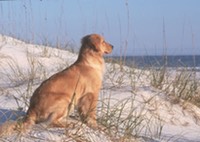Planning Ahead
We know how important situational awareness is, but just what does it include? Survival is more than the ability to get yourself out of a jam; the key to survival is the ability to avoid getting into a jam.
Here we are at that time of year when hypothermia becomes a major issue for mariners on the Gulf Coast. When the water temperature drops below 70°F, immersion becomes a critical event, and you don't really need to be in the water to become hypothermic, as I found out on a nice sunny September day, sailing to windward on Lake Michigan. On that September day on Lake Michigan, I knew we would be taking spray over the bow, so I donned my full suit of foul weather gear—but I didn’t put on enough clothing underneath the foul weather gear to properly insulate me from the cold lake water spray. By the time we arrived at our destination, I was at the borderline of hypothermia. If we had encountered a problem that delayed our arrival at our destination, I could have been in real trouble. Something to consider when planning. It was a sunny day and I was concerned about being too warm when I dressed for the trip.
Falling into a sunny-day trap can be deadly when the water is cold—when something unexpected happens. The following account from Mario Vittone at Soundings illustrates how deadly and tragic the hazard can become:
No one could figure out what happened. He was just going fishing. It was a beautiful winter day, and he knew all the good spots. He had plenty of gas, his boat was in good shape, and he had VHF radios, a life jacket and an EPIRB. Being a retired U.S. Navy boatswain’s mate, he knew the water and all about boats. He had even won safety awards.
I knew what went wrong even before we started our U.S. Coast Guard helicopter and flew up the James River in Virginia to look for him.
There he was, face down and dead in the freezing water. A pocket of air in his coat was the only thing keeping his shoulders and part of his head on the surface. It had been less than 24 hours since he’d left the docks at Hog
Island. Now, his body was almost 2 miles from his capsized boat. You see, one of the first things you lose in freezing water is your ability to hold on.Though some blamed a squall and a stuck anchor, that wasn’t what went wrong. It really was just this simple: The retired Navy boatswain’s mate, fisherman and father died because he forgot where he was going.
He thought he was going fishing. But fishing is a “what,” not a “where.” He failed to make the distinction between what he was doing and where he was doing it. It was January on the James River. He must have forgotten that, because he took his children with him. Somewhere down there in the freezing cold river, just as dead, were his 8- and 12-year-old sons. And though I didn’t see it happen, I knew in my heart that they were the last things he let go of in his life.
Before that case, I thought what we did as Coast Guard rescue swimmers was to save people from the tragedies that befell them at sea. But as I searched out the window for those children’s bodies—through tears I didn’t expect—I realized that what we did for a living, most of the time, was to try and save people from themselves. That case changed me more than any other and convinced me that the last great gains to be made in maritime safety involved the way people thought about boating. The realization that prevention saves more lives than response is what made me change professions from rescuer to writer and teacher. I don’t know if you’ve noticed, but all I want to do is change the way you think, or at least get you to challenge what you think.
What if? can be the most important question of your life.
Stay safe. Plan ahead, and be prepared.
/fl
